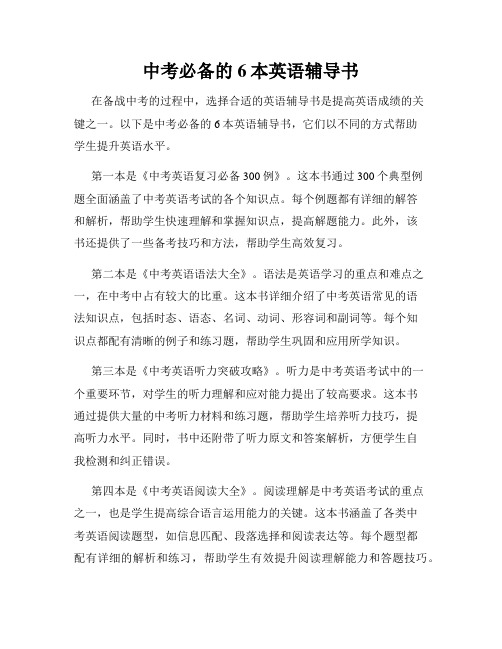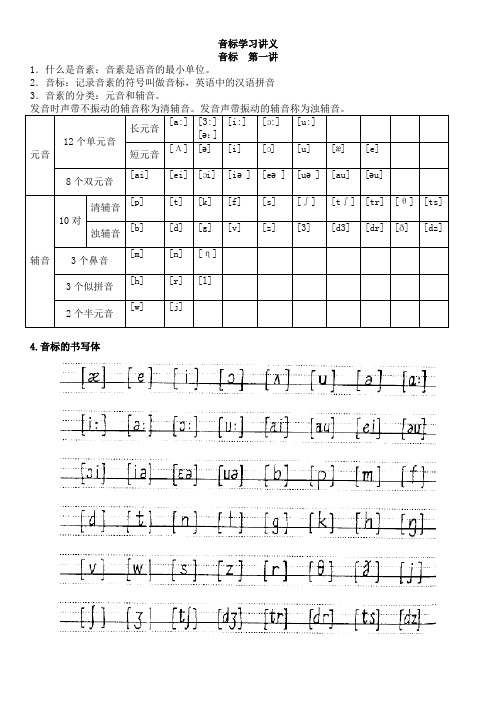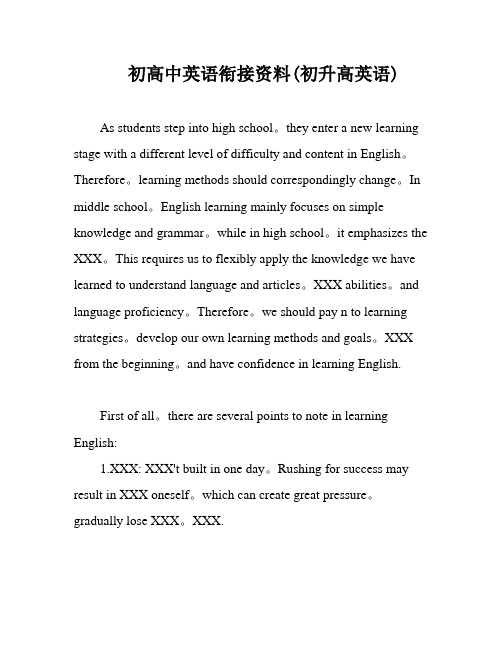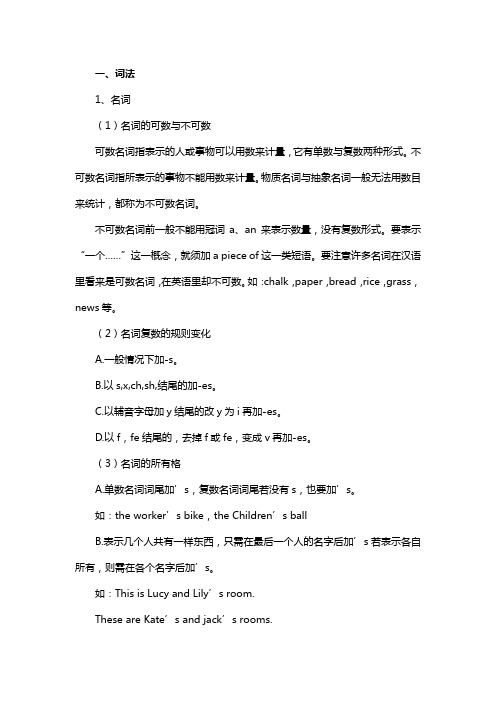初升高英语辅导资料1
初中英语教辅材料

初中英语教辅材料推荐:
1. 《初中英语必刷题》:这本书针对的是初中学生,适合九年级学生中考复习使用。
这本书的内容是非常丰富的,包括阅读理解、完型填空、语法填空、七选五等,题目类型全面,具有很强的针对性和实践性。
2. 《初中英语词汇变形》:这本书主要针对的是初中英语词汇的学习和应用,书中的内容会根据词汇变形设计多种练习,通过练习帮助学生更好地掌握和应用词汇,可以更好地提高学生对词汇的理解和记忆。
3. 《初中英语语法填空》:这本书针对的是初中英语语法的学习和应用,书中的内容涵盖了初中英语语法的重点和难点,通过练习和讲解帮助学生更好地掌握和应用语法知识,提高英语写作和阅读理解的能力。
4. 《初中英语阅读理解》:这本书主要针对的是初中英语阅读理解的学习和应用,书中的内容涵盖了初中英语阅读理解的常见题材和难度级别,通过练习和讲解帮助学生更好地掌握和应用阅读理解技巧,提高阅读理解的能力。
希望以上推荐对您有所帮助,祝您学习进步!。
中考必备的6本英语辅导书

中考必备的6本英语辅导书在备战中考的过程中,选择合适的英语辅导书是提高英语成绩的关键之一。
以下是中考必备的6本英语辅导书,它们以不同的方式帮助学生提升英语水平。
第一本是《中考英语复习必备300例》。
这本书通过300个典型例题全面涵盖了中考英语考试的各个知识点。
每个例题都有详细的解答和解析,帮助学生快速理解和掌握知识点,提高解题能力。
此外,该书还提供了一些备考技巧和方法,帮助学生高效复习。
第二本是《中考英语语法大全》。
语法是英语学习的重点和难点之一,在中考中占有较大的比重。
这本书详细介绍了中考英语常见的语法知识点,包括时态、语态、名词、动词、形容词和副词等。
每个知识点都配有清晰的例子和练习题,帮助学生巩固和应用所学知识。
第三本是《中考英语听力突破攻略》。
听力是中考英语考试中的一个重要环节,对学生的听力理解和应对能力提出了较高要求。
这本书通过提供大量的中考听力材料和练习题,帮助学生培养听力技巧,提高听力水平。
同时,书中还附带了听力原文和答案解析,方便学生自我检测和纠正错误。
第四本是《中考英语阅读大全》。
阅读理解是中考英语考试的重点之一,也是学生提高综合语言运用能力的关键。
这本书涵盖了各类中考英语阅读题型,如信息匹配、段落选择和阅读表达等。
每个题型都配有详细的解析和练习,帮助学生有效提升阅读理解能力和答题技巧。
第五本是《中考英语写作范文》。
写作是英语考试中锻炼语言表达能力和逻辑思维的一种方式。
这本书收录了多个中考英语写作范文,包括作文、信件、口头通知和拓展写作等。
每篇范文都有详细的写作指导和评分标准,帮助学生了解写作技巧和要点,提高写作水平。
第六本是《中考英语词汇记忆宝典》。
词汇是英语学习中的基础,也是中考中的重要考点。
这本书系统整理了中考英语中常见的词汇,包括高频词汇、同义词和反义词等。
每个词汇都配有中英文解释和例句,帮助学生记忆和理解词汇的用法和意义。
通过选择适合自己的英语辅导书,并结合平时的学习和练习,相信同学们能够事半功倍,取得中考优异成绩。
成都初中英语教辅资料

成都初中英语教辅资料
以下是一些成都初中英语教辅资料的推荐:
1. 《初中英语词汇手册》:这本书提供了初中阶段常用的单词和词组,以及相应的释义和例句,帮助学生扩展词汇量。
2. 《初中英语语法指南》:这本书系统地介绍了初中英语语法的基本知识点和规则,包括时态、语态、虚拟语气等,适合学生复习和巩固语法知识。
3. 《初中英语听力训练》:这是一套针对初中生设计的听力训练教材,通过大量的听力练习和听力理解题目,提高学生的听力水平和听力技巧。
4. 《初中英语阅读理解》:这本书收集了一系列适合初中生阅读的文章和阅读理解题目,旨在培养学生的阅读能力和理解能力。
5. 《初中英语写作指导》:这本书提供了一些写作技巧和范文,帮助学生提升写作能力,包括写作结构、词汇选择和句子表达等方面的指导。
这些教辅资料可以在当地的书店或在线购买平台上找到。
同时,也建议与学校的英语教师进行沟通,了解他们推荐的教辅资料和学习方法。
1。
初升高英语(并列句和复合句 )

教育学科教师辅导教案学员编号: 年 级:初三 课 时 数: 学员姓名:YYY 辅导科目:英语 学科教师: XX 授课类型 C 并列句和复合句 星 级 ★★★教学目标1、 正确区分并列句及复合句2、 掌握好各个并列句的用法(建议2-5分钟)批注:老师可以通过这两幅图片跟学生诠释什么是并列句(用并列连词连接起来的两个或两个以上的简单句叫做并列句),什么是复合句(复合句是由一个主句和一个或一个以上的从句构成的句子。
主句和从句都具有完整的主谓结构,主句是全句的主体,从句是主句中的一部分,不能独立存在)。
(建议20-25分钟)一、并列句用并列连词连接起来的两个或两个以上的简单句叫做并列句。
并列句的构成“简单句+并列连词+简单句”。
常用的并列连词C 并列句和复合句A BAB并列连词种类代表词用法联合连词and, both…and, notonly… but also用以连接句中的并列成分e.g. She studies not only English but also Japanese.选择连词or, either…or,neither…nor用以链接句中可供选择的成分。
e.g. Now I must go or I shall be late for school.The young man must be either mad or drunk.Neither he nor you are wholely right.转折连词but 用以表示意思的转折e.g. Summer is hot but winter is cold.因果连词so 用以表结果e.g. He was in bad health, so he could not work.原因连词for 用以表示原因或是引出一个推断的某种依据e.g. It is morning, for the birds are singing. (并不表示直接的因果关系)批注:老师可以通过挖空填词、翻译句子等形式对这些知识点进行巩固。
初升高衔接英语定语从句讲义(1)

定语从句(初高考点差异及衔接)定义:1.定语从句——在复合句中,作定语修饰名词或代词的从句(句意: …的)作用相当于形容词。
2.先行词——被定语从句修饰的那个名词3.关系词——引导定语从句的词叫做关系词。
在定语从句中,先行词可代替先行词在从句中充当成分。
考点1 3组易混关系代词的用法辨析1. 只用that不用which的情况(1)先行词是all,much,little,something,everything,anything,nothing,none等不定代词时。
All that you need to do is focus on one thing.(2)先行词被the only, any, few, no, very等修饰时。
Australia is the only country that is also a continent.(3)先行词是形容词的最高级或序数词或被形容词最高级、序数词修饰时。
This is the most interesting film that I’ve ever seen.(4)先行词既有人又有物时。
Do you know the things and persons that they are talking about?(5)当主句是以which或who开头的疑问句时。
Which is the bike that you lost?Who is the man that is reading over there?(6)当主句是以here, there开头时。
Here is the hotel that you have been looking for.(7)先行词在主句中作表语, 而关系代词也在从句中作表语时。
Shandong is no longer the province that it used to be.2. 只用which不用that的情况(1)关系代词前有介词时。
2023年初升高英语音标讲义

音标学习讲义音标第一讲1.什么是音素:音素是语音的最小单位。
2.音标:记录音素的符号叫做音标,英语中的汉语拼音3.音素的分类:元音和辅音。
元音12个单元音长元音[a:] [3:][ә:][i:] [ɔ:] [u:]短元音[Λ] [ә] [i] [ɔ] [u] [æ][e]8个双元音[ai] [ei] [ɔi] [iә ] [eә ] [uә ] [au] [әu]辅音10对清辅音[p] [t] [k] [f] [s] [∫] [t∫] [tr] [θ] [ts] 浊辅音[b] [d] [g] [v] [z] [3] [d3] [dr] [ð][dz]3个鼻音[m] [n] [η]3个似拼音[h] [r] [l]2个半元音[w] [j]4.音标的书写体26个字母与音标的对应"A" makes the sound /æ/ - apple, ant“B” makes the sound /b/- bee, bird“C”makes the sound /k/ - cat, cow“D” makes the sound /d/ - dog, deer"E" makes the sound /e/ - egg, elephant“F” makes the sound /f/ -fish, frog“G”makes the sound /g/ -girl, guitar“H” makes the sound /h/ - house,hat“I” makes the sound /i/---insect,igloo“J” makes the sound /dʒ /---jump,jacket“K” makes the sound /k/--- kite,king“L” makes the sound /l/---lion,leaf“M” makes the sound /m/--- monkey, mop“N” makes the sound /n /---night, night“O” makes the sound /o/--- octopus, ostrich“P” makes the sound /p/--- pig, pepper“Q” makes the sound /kw/--- queen, quarter“R” makes the sound /r /--- rose, rocket“S” makes the sound /s /--- salad, spoon“T” makes the sound /t/--- tiger, tent“U” makes the sound /ʌ /--- umbrella, upset“V” makes the sound / v /--- vase ,vegetable“W” makes the sound /w /--- walrus , wet“X” makes the sound /ks /--- axe, box“Y” makes the sound / j /--- yak, yard“Z” makes the sound /z /--- zebra , zig zag音标第二讲元音音标学习元音之间的差异,是由发音时各发音器官所采取的不同位置形成的。
初高中英语衔接资料(初升高英语)

初高中英语衔接资料(初升高英语)As students step into high school。
they enter a new learning stage with a different level of difficulty and content in English。
Therefore。
learning methods should correspondingly change。
In middle school。
English learning mainly focuses on simple knowledge and grammar。
while in high school。
it emphasizes the XXX。
This requires us to flexibly apply the knowledge we have learned to understand language and articles。
XXX abilities。
and language proficiency。
Therefore。
we should pay n to learning strategies。
develop our own learning methods and goals。
XXX from the beginning。
and have confidence in learning English.First of all。
there are several points to note in learning English:1.XXX: XXX't built in one day。
Rushing for success may result in XXX oneself。
which can create great pressure。
gradually lose XXX。
初升高英语衔接之必备基础语法知识

一、词法1、名词(1)名词的可数与不可数可数名词指表示的人或事物可以用数来计量,它有单数与复数两种形式。
不可数名词指所表示的事物不能用数来计量。
物质名词与抽象名词一般无法用数目来统计,都称为不可数名词。
不可数名词前一般不能用冠词a、an来表示数量,没有复数形式。
要表示“一个……”这一概念,就须加a piece of这一类短语。
要注意许多名词在汉语里看来是可数名词,在英语里却不可数。
如:chalk,paper,bread,rice,grass,news等。
(2)名词复数的规则变化A.一般情况下加-s。
B.以s,x,ch,sh,结尾的加-es。
C.以辅音字母加y结尾的改y为i再加-es。
D.以f,fe结尾的,去掉f或fe,变成v再加-es。
(3)名词的所有格A.单数名词词尾加’s,复数名词词尾若没有s,也要加’s。
如:the worker’s bike,the Children’s ballB.表示几个人共有一样东西,只需在最后一个人的名字后加’s若表示各自所有,则需在各个名字后加’s。
如:This is Lucy and Lily’s room.These are Kate’s and jack’s rooms.C.如果是通过在词尾加-s构成的复数形式的名词,只加’。
如:the students’books,the girls’blouses(另外:如果名词是有生命的,我们就用’s结构来表示所有关系。
如果名词所表示的事物是无生命的,我们就要用名词+of+名词的结构来表示所有关系。
)2、代词人称代词,物主代词,反身代词,指示代词,不定代词(1)人称代词第一人称单数I me my mine myself复数we us our ours ourselves第二人称单数you you your yours yourself复数you you your yours yourselves第三人称单数he him his his himselfshe her her hers herselfit it its its itself复数they them their theirs themselves(2)物主代词物主代词的用法:形容词性物主代词后面一定要跟一个名词;名词性物主代词可作主语、表语、宾语。
- 1、下载文档前请自行甄别文档内容的完整性,平台不提供额外的编辑、内容补充、找答案等附加服务。
- 2、"仅部分预览"的文档,不可在线预览部分如存在完整性等问题,可反馈申请退款(可完整预览的文档不适用该条件!)。
- 3、如文档侵犯您的权益,请联系客服反馈,我们会尽快为您处理(人工客服工作时间:9:00-18:30)。
2016年暑假妙笔初升高英语辅导资料(一)How to Miss a TrainIris is very forgetful and so she worries a great deal; She worries a great deal and so she becomes even more forgetful. She also talks to herself a lot. Here is an example of what can happen when she is going out.She has her hat and coat on and is just about to open the front door. She stops a moment.‘Is the electric cooker off?’Iris never forgets to turn the cooker off but she goes back to the kitchen to make sure. Yes, the cooker is off.‘ Good. That’s all right. Now. I must hurry.’She goes back to the front door and opens it. Then she closes it again.‘Is the television off in the sitting-room? Yes, of course it must be. I can’t hear it. But perhaps there’s no programme on just now. I must go and see if it’s off.’She goes to the sitting-room and feels a knob on the television set.‘Yes, I don’t usually forget that. Oh dear! It’s getting a bit late. I don’t want to miss that train.’So she goes back to the front door and opens it. She is going through the doorway when she stops suddenly.‘My key! If I forget that, I can’t get in tonight. It’s somewhere in my handbag, I think. No. it’s not in my purse; not in the front pocket; not loose with my powder compact and handkerchief. Ah, I know! Yes. It’s in my coat pocket. Thank goodness!‘ Oh, but the cellar light, Is that off? I must go and see’She closes the front door again and goes to the cellar door. She opens it and looks downstairs. The cellar is in darkness.‘Can I possibly catch that train now? I still have to buy a ticket. Oh dear! I must run all the way.’But her trouble aren’t over. They are really only just staring. Halfway down the garden path she looks at the sky, which is covered with grey clouds. She looks back at the house.’‘I know it’s going to rain. And that bedroom window is wide open. I must close it. I suppose I can catch the next train.’She opens the door again, putting the sky back in her handbag. She throws her handbag on the hall table, rushes upstairs and closes the window.‘ I must fly. I may catch it with a bit of luck.’She runs downstairs and straight out of the house, closing the door behind her noisily.But she doesn’t catch either the first or the second train.And it doesn’t rain all day.Poor Iris!Exercises一.Fill in the blanks with can may must and need and then translate the sentences into Chinese;1.You ____ not go by bus now if you are not ready. You ______go by bike, but you _____get there before three o’clock. You ____ not be late.2.I _____ not open this handbag. Something ______be wrong with it.3.Please turn on the radio. There _____be a good programmer on.4.It’s 7:45 already. We ____ run.5._______ we hand in over homework tomorrow afternoon? No, you ___ hand it intomorrow morning.6._____ I use a pen? No, you ____n’t. You ____ use a pencil.7.Xiao Ming _____ not be in the library because it is not open yet.8.If he ____ lift this heavy box, he_____be very strong.9.I _____ come tonight, but I _____ not be sure.10.It’s eight o’clock and he is still in bed. He _______be ill.11.It _____ rain, but you _____ n’t worry. I ____lend you my raincoat.12.You ____ use my bag, but you ____n’t lose it.二.Use word and expressions from the text instead of those italicized, making the necessary changes in the sentences:1.You are a little early today.2.The film ended at 9:30.3.I believe they have got tickets.4.The meeting will begin in ten minutes. You must be quick.5.Has the radio been turned off?6.Your boy has grown very much in the past year.7.After she uses the dictionary, she puts it on the desk again.8.She is wearing her new shoes today.9.I must be at the station at two o’clock.10.The train was just going to start when he arrived.11.He always remember to turn off the light before he leaves the room.12.they live in a certain place near the school.13.When she heard the good news, she ran upstairs to tell her mother.14.There is no light in the room三.Fill in the blanks with prepositions and adverbs:1.The nurse went _____ the sick man’s room and closed the door______ her quietly.2.How did you get ____ if there was nobody ______ home?rade Dong is ____ the sitting-room _____ a visitor.4.As he walked ____ the path. He did not even look back ____his family.5.Did he have his coat ____ when he went _____?6.The old woman often talks _____ herself when she is alone _____ the house.7.They went _____ the doorway and then upstairs _____ their teacher’s room.8.If your handkerchief is not ______ your handbag, it must be _____ your pocket.9.All the lights were ______ and the whole house was ____ darkness.10.He thought his troubles were ____, but suddenly he heard a loud noise ____ the cellar.11.He thought his first knob ___ the television set to see if there was a good programme___12.She took the money ___ ____ her purse and threw it ___ the table.13.Please give us an example ____ how he learned ___ others.14.____ a bit ____ luck you may get back ____ your school before it starts raining . 四.Translate the following into Chinese:1.Sit down. You must be tired.2.You must put on your coat. It’s very cold outside.3.Here’s his key. He must be a very forgetful person.4.You must go and talk to him.5.You must start before then o’clock.6.Look at him. He must be angry with us.7.Let’s ask her. She must know where he is.8.We mustn’t get there late.9.You must be very careful when you open the box.10.It must be somewhere in your room.五.Translate the following into English, using the words and expressions given below: be about +inf. see if miss be + v-ing ….when somewhere be covered with either … or …1.她要走出房子的时候,回头看看灯是否都关了。
